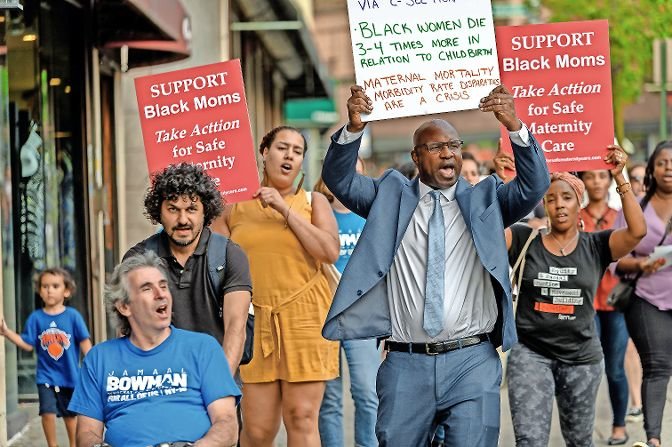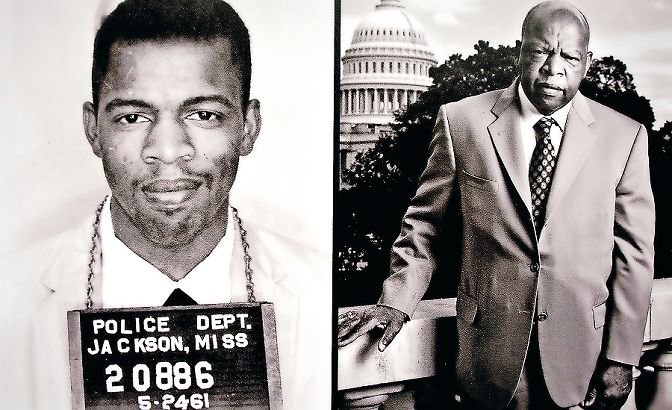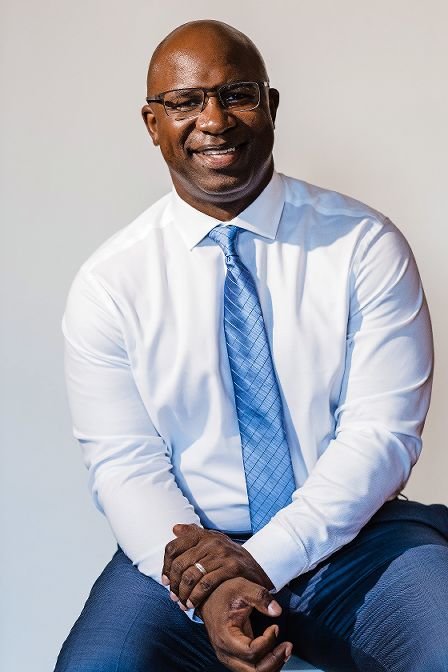Bowman looks to get into some ‘good trouble’
When John Lewis was beaten by the police during what had started as a peaceful protest in Alabama on March 7, 1965 — a day later known as “Bloody Sunday” — he was essentially a second-class citizen in his own country. And he probably didn’t think that same country would one day fly its flags at half-mast in his honor.
But that’s exactly what happened.
Leading the Selma-to-Montgomery marches wasn’t the only thing Lewis was known for. He was the youngest speaker at the March on Washington for Jobs and Freedom in 1963 — the same gathering in front of the Lincoln Memorial that included Dr. Martin Luther King Jr.’s famous “I Have a Dream” speech. He once chaired the Student Nonviolent Coordinating Committee, and was one of the 13 original Freedom Riders — a group which protested segregation in the Jim Crow-era South.
But those who don’t remember John Lewis as the take-no-prisoners civil rights advocate certainly know him as a congressman — a decades-long career that ended July 17 after succumbing to pancreatic cancer. He was 80.
Lewis served 17 terms as the representative from Georgia’s Fifth Congressional District — nearly 35 years. His legacy of civil rights was no mystery to his congressional colleagues, who dubbed him “the conscience of Congress,” and one that always had him looking for “good trouble.”
Lewis’ career inspired countless people through the years, and across the country. But his impact was also local, as congressional hopeful Jamaal Bowman looks to continue that legacy when he’s expected to take office in January, representing New York’s 16th Congressional District.
Bowman made waves challenging longtime incumbent Eliot Engel in the Democratic primary. Despite the existing “old guard” of the Congress working against him — even watching as Lewis himself backed Engel — Bowman still found victory in last month’s Democratic primary.
But then again, Bowman was turning heads long before that, placing racial justice at the forefront of his campaign.
“When you look at all of America’s institutions, institutional racism and structural racism persist in every institution,” Bowman said. “If we center racial justice, we can begin to deal with all of the other issues like underfunded schools, segregated neighborhoods, lack of health care (and) environmental injustice.”
Long before he entered politics, Bowman made it his life’s goal to continue the work of the American civil rights movement in however many ways he could. He was inspired and invigorated by those who not only spoke up about racial issues, but backed those words up with action.
There’s no clearer example of that than Lewis, who was arrested 40 times fighting for civil rights — including five more times as a sitting congressman. And just because the 1960s and its civil rights movement ended, that didn’t mean Lewis ever stopped fighting.
If Lewis felt he was needed somewhere, he found a way to make something happen. Following the Pulse nightclub shooting in Orlando, Florida, in 2016, Lewis joined 60 other lawmakers staging a sit-in to protest gun violence at the Capitol. And as recently as 2019, he presided over a House vote establishing a new Voting Rights Act.
The initial act, passed in 1965 — and for which Lewis led the Selma-to-Montgomery marches — was struck down in 2013 by the U.S. Supreme Court.
But even with that House victory, there still come roadblocks. The 2019 Voting Rights Act remains stalled in the U.S. Senate. Following his death, however, there were calls to rename the bill after Lewis.
“He continued to fight for voting rights even in 2020, which is insane to even say out loud,” Bowman said. “But he continued that fight, the same fight he started as a civil rights icon.”
Although Lewis began fighting for racial justice in the 1960s, some of the same problems still persist 60 years down the line. And to Bowman, it might not get better until the root of these issues is addressed: Slavery and its lasting effects on American society.
“Racism and slavery (are) America’s original sin,” Bowman said. “And we haven’t become a post-racial society yet because we haven’t dealt with that original sin, and we haven’t had to right the wrongs of that original sin.”
Looking ahead, Bowman already has an idea of how he plans to address that original sin. He’s come out in early support of U.S. Rep. Barbara Lee’s proposed Commission on Truth, Racial Healing and Transformation and U.S. Rep. Ayanna Presley’s People’s Justice Guarantee.
But until he gets to Congress, Bowman has a short-term objective for his future constituents: Participate in the census because it’s critical in bringing needed resources to struggling communities.
Bowman recognizes the impact of those who came before him, especially the impact they’ve had on his own morals, beliefs and policies. And for him, there are few people more integral in forming that legacy than Lewis.
“I stand on his shoulders and on the shoulders of many others,” Bowman said. “I hope to be a percentage of the (congressman) that he was.”











